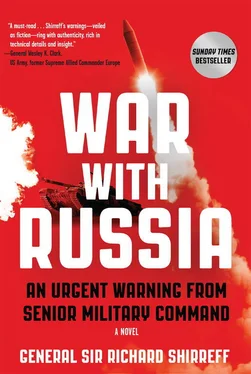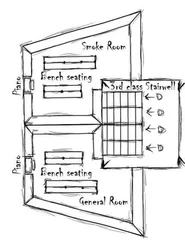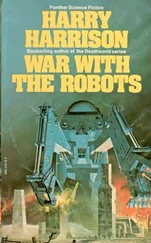“Vladimir Vladimirovich. NATO, under American leadership, has mobilized significant forces. In the western Baltic, the Alliance has amassed an amphibious force based on 2nd Marine Expeditionary Force, that’s an air-ground task force of around divisional size. Supporting it is the American 6th Fleet with two carrier battlegroups and a total of forty ships, with one hundred and seventy-five aircraft. All in all that’s a sizable force in its own right. At the same time, the Alliance has concentrated a strong corps of three divisions under Headquarters ARRC, that’s the Allied Rapid Reaction Corps, the British-led NATO High Readiness Force Land headquarters. They are now in northeast Poland, just south of the Lithuanian border.”
“Does that mean we are outnumbered?”
“No. But our forces are dispersed throughout the Baltic states, whereas NATO can concentrate all their effort to achieve decisive effect and we’ll be heavily outnumbered at that point.”
The President thought about this for a few moments. “So the strategic situation is still in our favor. If the Alliance is foolish enough to concentrate its forces at one point, which they must to launch a successful attack, they can be eradicated by just one of our tactical nuclear warheads?”
“Correct, Vladimir Vladimirovich.” The general gave a grim smile. “There may be a distinction between tactical and intercontinental warheads, but the reality is that even the smallest modern warhead is many times more powerful than the bomb the Americans dropped on the Japanese in 1945. Just one well-placed tactical warhead will rip the heart out of an army corps. Those not incinerated on the spot will be too traumatized to continue fighting. Many more will die in the following days and weeks.”
“And they can do the same to us with their Cruise missiles…”
“Exactly. The difference is that Russia is such a vast country that we can disperse and hide and enough of us will survive. Western Europe is heavily populated. Their electorates would never permit such a thing. What is more, their politicians know we really will push the button if we are attacked.”
The President nodded, calmer now. “As you say, Mikhail Nikolayevich, exactly . So, is this force they are pretending to threaten us with in the Baltic entirely American? What about the three divisions under the ARRC?”
“Vladimir Vladimirovich, you’re correct that the Baltic naval and amphibious force is largely American, but not entirely. The British have deployed their Commando brigade headquarters in HMS Albion , an amphibious ship, together with a Royal Marine commando, while the Dutch have committed a marine battalion in the Rotterdam , their amphibious ship. Besides that, the British have also deployed HMS Ocean , a helicopter carrier, together with all the escorts they can muster. Add to that the French carrier, Charles de Gaulle and a number of escorts—frigates and destroyers—from Germany, France, Italy, Spain, Portugal, Norway, Denmark and Belgium, to say nothing of, probably, hunter-killer subs from UK, France, Germany and, of course, America. So, the European members of NATO can certainly say to each other that they’ve stepped up to the mark. And, that is what our informants tell us they are saying to each other at leader and foreign minister level. The key point to make here is that, even with all their command and control problems, this force is significantly bigger than our Baltic Fleet. And that would be worrying if we thought that they were ready to risk nuclear retaliation, which…”
“They are not,” said the President interrupting, ignoring Gareyev’s concerns. “What about the divisions under the NATO corps in northeast Poland?”
“The strongest by far is the US Fourth Infantry, but on top of that there is the UK’s Third Division with a British armored brigade and a French Foreign Legion light-armored brigade. We’ve also just heard that the Italians are sending the Ariete armored brigade, which has always had a very close relationship with the ARRC. Most of the combat support—the artillery, engineers, reconnaissance and other support—is British, but with a fair representation from a number of other nations. And, of course, every nation will be contributing logistic units to support their own people.”
“And the Germans?”
“Yes. We’ve all been surprised by the Germans. First Panzer Division is now deployed and ready to roll in northeast Poland. And it’s strong. It has also been reinforced by the Polish Tenth Armored Cavalry Brigade.”
“Poles fighting alongside Germans. That must be a first. We certainly have united the Alliance…”
The President’s attempt at a weak joke was met by an awkward silence around the table.
Even a fortnight ago, Komarov thought, there would have been guffaws of fawning laughter. Not now, though, as the size of the forces building up on their border and the magnitude of their potential military miscalculation began to sink in.
Quickly the President moved on. “What do you assess is NATO’s intention?”
Gareyev replied, “Vladimir Vladimirovich, we have considered this question in great depth and our assessment is based not only on the Alliance’s deployment of forces and its capabilities, but we have also drawn extensively on both signals intelligence and human intelligence. We have called in every favor we are owed and risked exposing our top assets in the West to get at the truth of what is really going on. More than that, we have war-gamed and conducted operational analysis on several different scenarios. Finally, I have put all that mass of information to one side and asked myself the key question: what would I do if I was Admiral Howard, the SACEUR?”
“And what would you do, Mikhail Nikolayevich?”
“My view is that SACEUR’s intention is to surround and neutralize our Baltic Fleet in Baltiysk, their base in Kaliningrad, and be prepared to conduct an amphibious landing on the coast of Estonia. Meanwhile, the NATO Corps in northeastern Poland is poised to conduct an invasion with three divisions into Lithuania. All this would be preceded by a massive air campaign to knock out our air defenses and neutralize our air force. Effectively, NATO is threatening an envelopment of our forces in the Baltic states by sea, land and air, with the aim of forcing our withdrawal from the Baltics.”
“What about deception?” probed the President.
“Very difficult for NATO,” replied Gareyev. “I know from my own visit to SHAPE and discussions with senior NATO staff, when they were still allowed to meet us in Moscow, that the NATO military authorities are allowed to do nothing without the agreement of the North Atlantic Council. That makes it very difficult to conduct a deception operation because surprise would be impossible to achieve. Any strategic military decision must be authorized by the NAC. That is the NATO convention. As soon as a plan is put on the table, we will know about it within hours… Whatever security they try to put in place.”
“But,” mused the President, ever the conspiracy theorist. “Surely…”
“I too have asked myself this,” General Gareyev interrupted, again something he would not have dared to do even a few weeks before. “I have concluded that NATO, as an organization, is incapable of the lateral thought required for successful maskirovka , or deception, hence the total surprise we achieved three years ago when we invaded Crimea. The situation is compounded by the NAC, which insists on retaining political authority for all operations. NATO has always had the problem of being too large, but once they expanded to twenty-eight members they became impossibly large. The politicians thought that the more members the better but, as we know, Vladimir Vladimirovitch, less can often be more.”
Читать дальше












